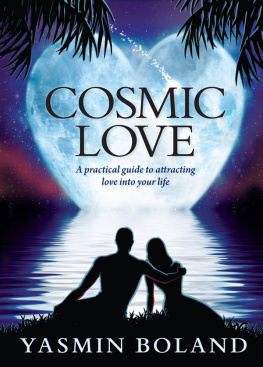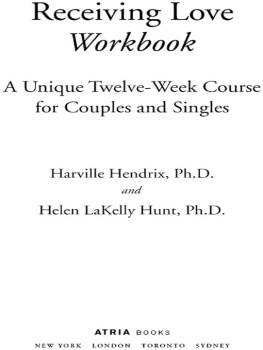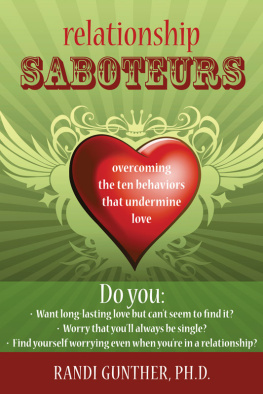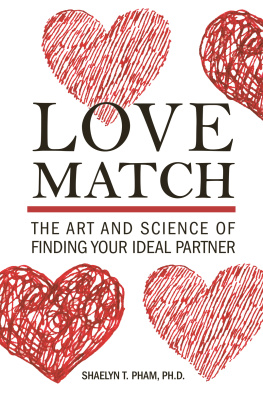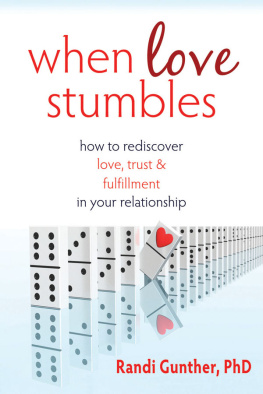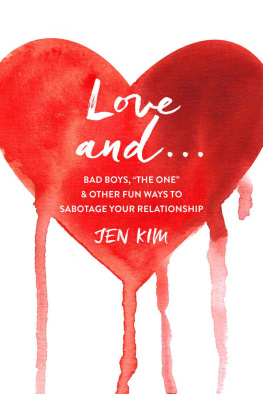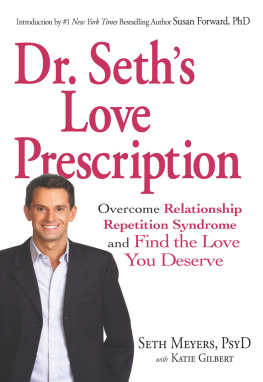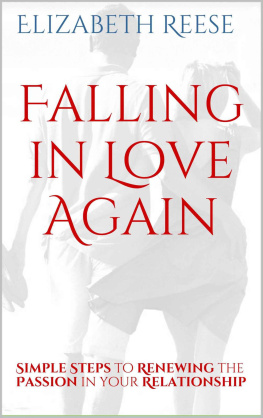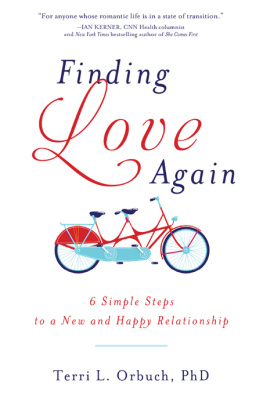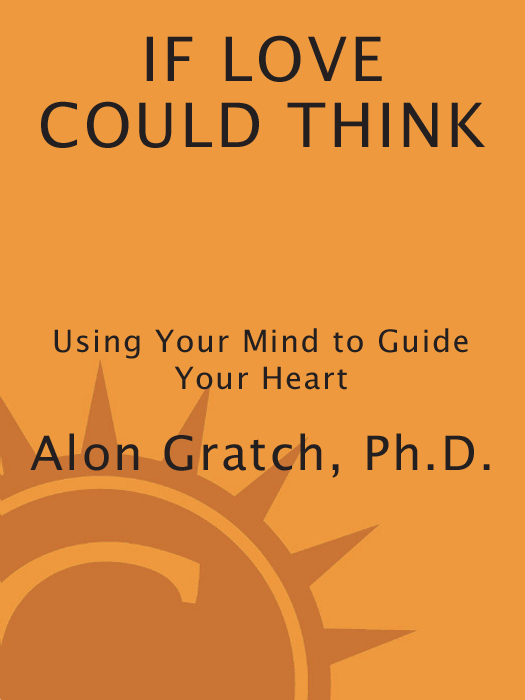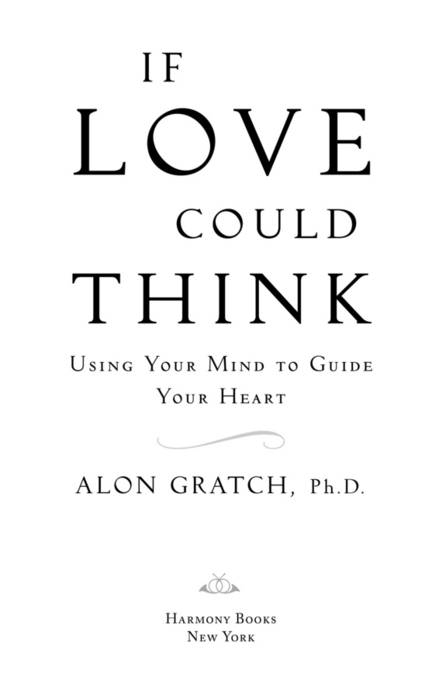Copyright 2005 by Alon Gratch
All rights reserved.
Published in the United States by Harmony Books, an imprint of the Crown Publishing Group, a division of Random House, Inc., New York.
www.crownpublishing.com
HARMONY BOOKS is a registered trademark and the Harmony Books colophon is a trademark of Random House, Inc.
Library of Congress Cataloging-in-Publication Data
Gratch, Alon.
If love could think : using your mind to guide your heart / Alon Gratch.1st ed.
1. Man-woman relationshipsPsychological aspects. 2. Love. 3. Ambivalence. I. Title.
HQ801.G665 2005
646.77dc22 2005013622
1-4000-9815-7
eISBN: 978-0-307-33812-9
v3.1
To Ilana, Jordan, and Michele,
who taught me so much about love
A UTHORS N OTE
All the cases described in this book are composites. They have been deliberately mixed and altered in order to protect my patients rights of confidentiality and privacy. No patient found in this book corresponds to any actual person, living or dead.
A CKNOWLEDGMENTS
First and foremost, Id like to thank my patients, past and present, from whose struggles, successes, and failures Ive learned both professionally and personally. It would be impossible to mention by name all the other peoplefriends, lovers, colleagues, supervisors, and superviseeswho, in crossing my path over the years, have contributed to my development as a psychologist and an author. Indirectly, they have all influenced the ideas presented in this book.
More directly, Im greatly indebted to a few individuals who have either shaped my thinking about love or encouraged and supported my desire to write about it. My wife and colleague, Michele Sacks, is simply the best. My analyst, Betty Hellman, and my colleagues/friends Brenda Berger and Ivan Bresgi have all been great sounding boards and generous supporters.
I would also like to express my deep gratitude to my agent, Tracy Brown, whose wise counsel, experience, and support have been invaluable, and to Kim Meisner, my editor at Harmony Books, who brought to the project tremendous enthusiasm, intelligence, and clarity; and to the following individuals for their kind and professional handling of me and the manuscript: Dorthe Binkert of Scherz Verlag, Christophe Guias of Editions Payot, Paul Christophe of Editora Campus, and Thanos Grammenos of Thymari.
Last but not least, Id like to thank my parents, Haya and Avraham Gratch, and my brothers, Eliezer Gadot and Ariel Gratch, and their families for their continued interest and support.
C ONTENTS
I NTRODUCTION
When Love Goes Wrong
A Brief History of Ambivalence
(The War of the Breasts)
1
Narcissistic Love
2
Virtual Love
3
One-Way Love
4
Triangular Love
5
Forbidden Love
6
Sexual Love
7
Androgynous Love
E PILOGUE
When Love Goes Right
INTRODUCTION

When Love Goes Wrong
Everything in life is metamorphosis, in plants and in animals, up to and including mankind as well.
G OETHE
W hen love goes wrong, nothing goes right. So goes the song and so say my psychotherapy patients, if not in words, then in symptoms and disorders.
When love goes wrong, our soul goes wrongand our minds play tricks on us. Depression, anxiety, panic attacks, sexual problems, stress, alcoholism, and drug addiction are all disturbances in our dialogue with love. As simplistic as it may sound, our failings in love are at the theoretical core of the most sophisticated schools of developmental psychology. Which is why I set out to learn and teachand now writeabout the sixty-four-million-dollar question of why love goes wrong and what, if anything, can make it right.
The patterns of failed love are by now a clich familiar to us all. Yet the underlying problem and what to do about it still baffle us. This book is for anyone struggling with these patterns. Whether youre contemplating breaking up a relationship or whether you already broke it off and dont want to repeat the same pattern in the next relationship, whether you are dating endlessly without being able to find the right person or whether you find yourself once again in a long-term relationship with the wrong person, whether youre wondering if you should go ahead with the wedding plans or whether youre questioning if youre stuck in a loveless marriage, or if youre simply fascinated by the mysteries of love and want to witness and decipher the dramatic and moving journeys of some of its most adventurous explorersmy patientsthis book is for you.
Over the years, while helping my patients to wrestle with the problem of love, Ive come to see that relationship patterns are not simply a repetition of a single, distinct behavior. For example, if your pattern is about getting involved with unavailable men, it is unlikely that all of them have been unavailable in the same way. One of your relationships may have been a long-distance one, another, with a man who couldnt commit, and a third with a man who was married or secretly bisexual. Furthermore, if this is your pattern, it is also likely that in order to overcome it, you have tried, probably more than once, to date someone you were not really attracted to but who was very much interested in you. In other words, your pattern included being on the other side of the equation.
This overlapping, interrelated nature of relationship patterns, we shall soon see, is not merely an incidental characteristic of our messy interpersonal landscape. Its to a large extent a consequence of the fact that these romantic patterns have a common psychological ancestor, one that we must understand if we are to attain love. Though it feels like it should be pure, love can never be so, because neither its giver nor its receiver are. Where there is love, there is always hate, or to put it in more palatable language, theres always anger and disappointmentprecisely because we care so much. To love requires that we be vulnerable, but being vulnerable makes us hatehate the person who makes us feel that way. Thats why we say we fall in love, not stand in love, and thats why so much music, poetry, literature, and movies are a variation on the theme of Falling in love again, never wanted to, what am I to do, cant help it.
In his book Can Love Last? psychologist Stephen Mitchell captured the essence of this ambivalence. Drawing on a metaphor used by Nietzsche to demonstrate mans struggle with his mortality, Mitchell describes romantic love as akin to building a sand castle on the beach. We must invest all our passion into it while at the same time keep in mind that at any moment it can all be washed away by the tide. This, of course, is a difficult state of mind to maintain, and as Mitchell put it, in order to manage it we split our exciting but uncertain sand castle into stone castles and castles in the sky. The former are our stable yet boring long-term relationships or marriages, and the latter are our fantasies or brief encounters of romantic ecstasy and sexual novelty. While neither makes us happy, in both cases we are safe from the uncertainty, risk, and vulnerability inherent in love. In the stone castles we might have too much reality and not enough fantasy, but at least we feel safe in their predictability and strength. In the castles in the sky we may have too much fantasy and not enough reality, but then again we dont have much to loseother than our illusions. As I will demonstrate throughout this book, the patterns of failed love are all based on this split. In trying to avoid the reality of loveits inherently ambivalent naturewe escape into ultimately untenable fantasies of perfect love.


